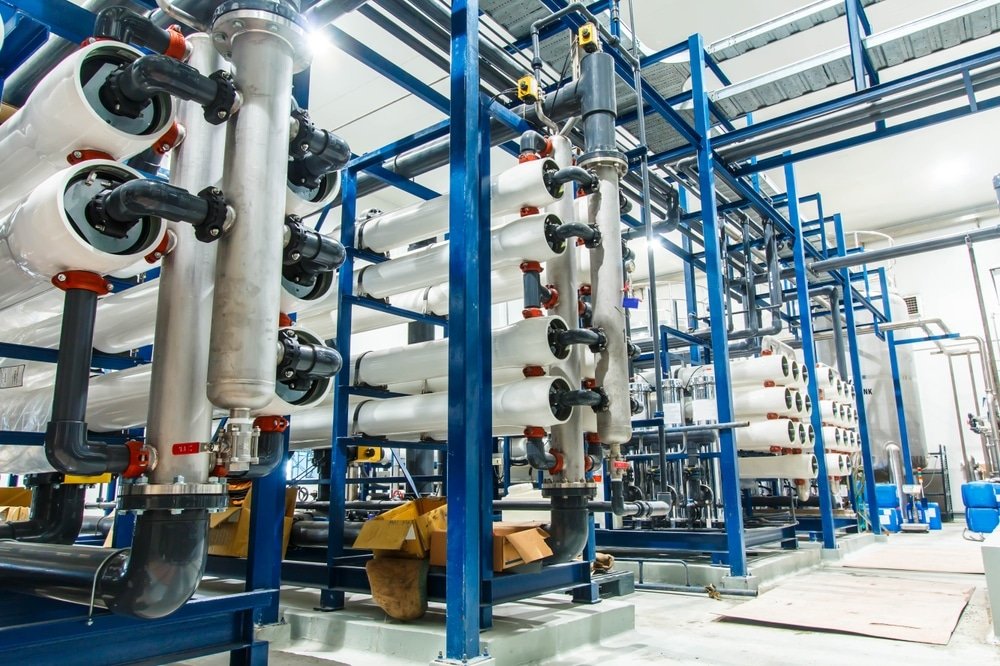Cordova, Cebu, is set to host a new desalination plant.
Vivant Water, the water infrastructure arm of Cebu-based Vivant Corp., aims to finalize testing and commissioning between March and April.
“This year, what we’re very excited about is the commissioning of the desalination plant in Cebu,” shared Vivant Chief Executive Officer Arlo Angelo G. Sarmiento. “That’s the first utility-scale seawater desalination plant in the country.”
According to Vivant Water President Jess Anthony Garcia, the facility’s construction cost is nearly P2 billion. “We expect to begin official commercial operations this year,” he added.
(Also read: First Gen to Equip Cebu’s Oakridge Business Park with Solar Rooftop)
Improving Metro Cebu’s water supply
Upon completion, the desalination facility is projected to produce up to 20 million liters per day (MLD) of drinking water in its initial phase, meeting the typical daily needs of 20,000 homes.
To make seawater safe for drinking, a desalination facility will extract salt and other contaminants, converting it into fresh water. This process relies on seawater reverse osmosis (SWRO), a method that effectively removes salt to produce potable water.
The facility is designed to bridge the gap between water supply and demand while giving overused groundwater aquifers time to recover naturally.
Garcia highlighted Metro Cebu’s significant potable water deficit, with daily demand reaching 500 to 600 million liters, whereas water supply varies between 100 and 250 MLD, dropping below 200 MLD during periods of dry weather.
(Also read: Jagna, Bohol Powers Up with Renewable Energy Investment)
A pioneering vision
A 25-year agreement was granted to Vivant Water in 2021 by the Metropolitan Cebu Water District (MCWD) for the construction of a large-scale desalination facility to enhance MCWD’s bulk water resources. Work on the project commenced in 2022.
At the launch of the facility’s initial operations in July 2024, Vivant Water President Jess Garcia expressed pride in the company’s achievement. “We are happy to offer an alternative solution to the water security issue in Cebu province, and ultimately the entire Philippines,” he said. “The traditional sources of water in the Philippines are groundwater and surface water, seawater desalination can be the third source of water, and we are proud to be the pioneers.”
During the 30th Philippine Water Works Association (PWWA) International Conference & Exhibition held in Boracay Island in November 2024, the company committed to incorporating desalination technology into local water networks to ensure sufficient water supply for a minimum of 100,000 residents in Metro Cebu.
Garcia said, “Our goal is to protect the region’s finite freshwater reserves by reducing reliance on groundwater aquifers.”
He stressed that securing sustainable water resources requires both the development of alternative supply options and strong partnerships between the public and private sectors.
Discussing future growth, Mr. Garcia suggested that the desalination facility’s output could increase to as much as 50 MLD, contingent on local demand.
Vivant holds stakes in multiple firms involved in power generation, distribution, and retail electricity. The company has also expanded into the water sector, building a diverse portfolio that includes bulk water supply, wastewater management, and distribution services.
In 2025, the company has allocated a P4.5-billion budget, prioritizing renewable energy initiatives, including solar and wind ventures. Its projects include launching solar installations with a combined capacity of 115 megawatts (MW) and a 200-MW wind farm in Samar.
Sources:


